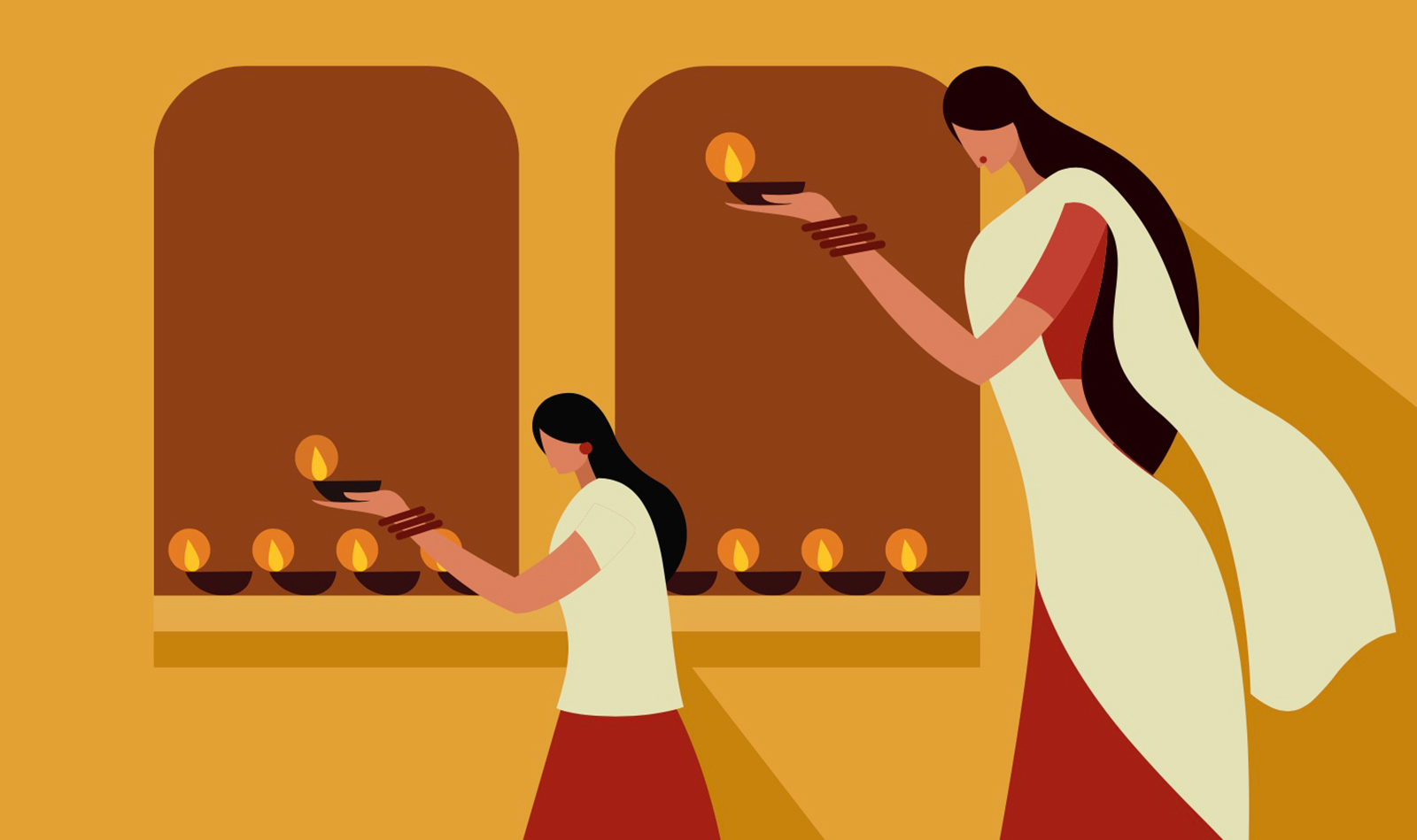Hindu parents should teach their children to be both knowledgeable and proud of their religion
By Mansa Devaki


I was fortunate to be born in an Indian Hindu family that is proud of its culture and religion. I was born in the Bay Area and raised there until I was twelve. Then we then moved to Maui, Hawaii. In California, my parents had taken my brother and me to the temple, like every other Hindu family. I enjoyed going there, meeting my regular temple friends and watching the fascinating pujas done by the priest. I loved to dress up in traditional Indian clothes and eat the prasadam after praying. While never forced to do religious rituals, as a dutiful daughter, I always did do them.
We had balanced lives, going to the temple but also being taken to the movie theater or park. Our parents understood that in today’s day and age, it is common for young people to waver from the right path if parents don’t listen to their questions and feelings. While many parents don’t explain the significance of Hindu rituals and prayers, mine would always tell us the reasons behind everything. They would buy us fun comics about the Hindu Gods that conveyed messages about our way of life. I applied these messages to life at school and home. I began to observe what other people were doing around me and the consequences they would face. This helped me build a stronger spiritual bond with the Supreme.
My family often travels to India to meet family and go on pilgrimages. Discovering our ancient religion through the temples there really grounded my brother and me and gave us a sense of belonging. We discovered there are real places behind the stories we’d read. For example, the Ramayana describes the floating stones of Rama Setu. I did not believe it until I saw these floating volcanic stones at Rameshwaram Temple.
Because I learned so much in my childhood about my roots, the transitions of my life have been easier. Whenever my peers in school ask me about India or Hinduism, I always have a proud answer ready. My family has always encouraged speaking out, so I’m not shy to correct my teachers’ or friends’ occasional inaccuracies about my culture or religion. We studied Hinduism in middle school, and when the teacher stated an inaccuracy about the offerings we make at a havan, a fire ritual, I instantly raised my hand to correct it. I then had the opportunity to talk to my entire class about Hinduism for the rest of the period. Everyone was impressed, and it was at that moment when I first realized that I am proud to be a Hindu.
It’s disappointing to see youth at our temples who do not understand what’s going on, or who seem ashamed or who even ridicule their own traditions. I believe it is a parent’s responsibility to instill Hindu values in their children, so they are not only aware of their culture, but proud of it. Religion helps stabilize a person’s identity and inner strength. So if parents encourage piano and tennis, why not emphasize the importance of discovering one’s true self in their religion and culture? Any questions, especially from children, should not be ignored.
Today, many people fail to understand the importance of religion and spirituality. In this yuga, violence and evil do exist; but our humanity does too, and keeping that alive is crucial. Hinduism teaches us to be dutiful, respectful and humane, which is crucial to this end. It has simple and logical beliefs that are not difficult to incorporate into our daily lives. Our philosophy of karma is a good example. If I am suffering today, then I should know that I have earned it and be more mindful in the future. This simple idea has a huge impact. We even see non-Hindus talking about karma, which should make us realize how fortunate we are to have this wisdom in our culture.
Mansa Devaki, 15 , is a junior in high school in Maui, Hawaii. She is fond of teaching about the intricacies of Hinduism and loves to dance, sing, and spend time with family and friends. Email mansa@mansasys.com


